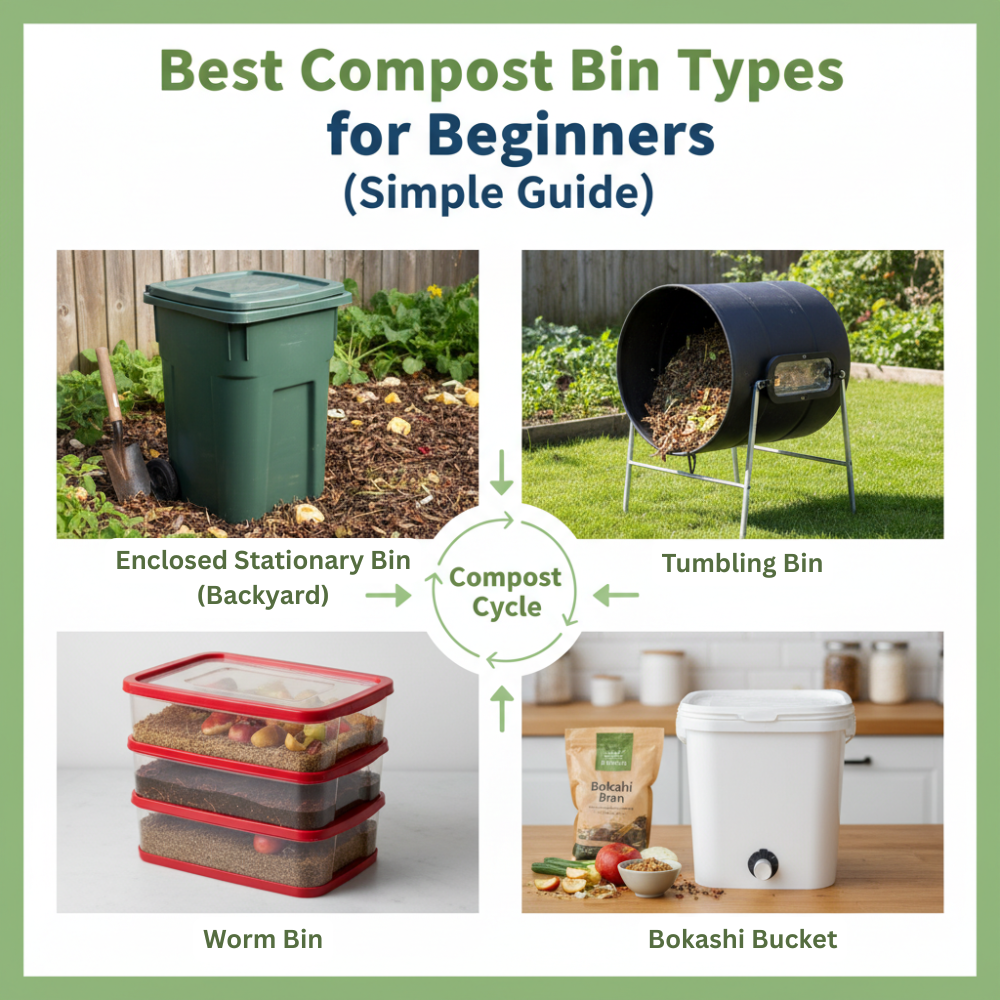Introduction
Starting composting is easiest when you pick a beginner-friendly bin. The right choice depends on your space, budget, and how hands-on you want to be. Below are the best compost bin types for first-time composters, with quick pros and cons.
1. Enclosed Stationary Bin (Backyard)
Best for: Small backyards and low-maintenance composting.
- Pros: Affordable, tidy look, keeps pests out, simple to use.
- Cons: Slower than tumblers; needs occasional turning with a fork.
- Tips: Place on soil for drainage and worm access; layer browns (dry leaves) and greens (kitchen scraps).
2. Tumbling Bin (Compost Tumbler)
Best for: Faster results with minimal mess.
- Pros: Easy to aerate by spinning; heats up quickly; neat and contained.
- Cons: Costs more; limited capacity; works best when you load in batches.
- Tips: Spin 3–4 times per week; keep moisture like a wrung-out sponge.
3. Worm Bin (Vermicomposting)
Best for: Apartments or indoor setups; produces premium vermicast.
- Pros: Low odor when done right; compact; great for kitchen scraps.
- Cons: Requires red wigglers and temp control; avoid meat/dairy/spicy foods.
- Tips: Start with bedding (shredded paper + moisture); feed small amounts weekly.
4. Bokashi Bucket (Pre-composting)
Best for: Fermenting all kitchen scraps (including small amounts of meat/dairy) before soil finish.
- Pros: Fast fermentation; minimal odors if sealed; compact.
- Cons: Needs bran inoculant; requires burial or mixing with soil/compost to finish.
Which One Should You Choose?
If you have a yard and want simplicity, choose an enclosed stationary bin. If you want speed and cleanliness, go for a tumbler. For apartments, try a worm bin or bokashi system.
Quick Starter Checklist
- Balance browns (dry carbon) and greens (fresh nitrogen) ~2–3:1 by volume.
- Keep moisture like a wrung-out sponge.
- Chop scraps small for faster breakdown.
- Aerate weekly (turn or spin).
Conclusion
The best compost bin for beginners is the one that fits your space and habits. Start simple, feed regularly, and you will have nutrient-rich compost in a few weeks to a few months.

